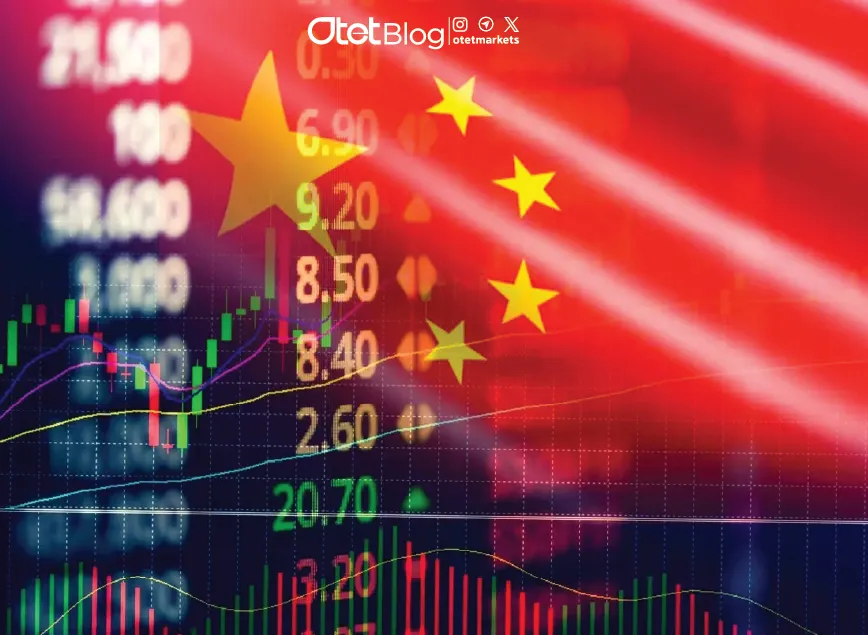
Artificial Intelligence in Financial Markets: Jobs and Future
Estimated reading time: 4 minutes
Table of contents
Artificial intelligence is transforming financial markets. Artificial Intelligence in Financial Markets With significant advancements in machine learning and big data analytics, AI helps investors and financial institutions make more precise and optimized decisions.
What is AI in Financial Markets?
AI consists of algorithms and models that process data, identify patterns, and improve decision-making. In finance, AI is used for market analysis, price trend forecasting, and optimizing investment strategies.
Machine Learning
Machine learning is a key branch of Artificial Intelligence in Financial Markets that enables models to learn from data and enhance their performance.
Supervised learning: The model learns from input data and labeled outcomes.
Unsupervised learning: The model detects hidden patterns and clusters within data.Reinforcement learning: The model improves its decisions over time by receiving rewards or penalties.
Deep Learning
Deep learning utilizes neural networks to process complex data. In finance, it plays a crucial role in:
Stock price prediction: Identifying long-term trends.
Sentiment analysis: Analyzing social media and news for market insights.
Natural Language Processing (NLP)
NLP allows AI to process human language, making it a game-changer in financial analysis. Key applications include:
- News sentiment analysis – Tracking headlines to assess market sentiment.
- Financial report analysis – Extracting insights from company earnings reports.
Read More: The Future of Artificial Intelligence in Financial Markets
How AI is Transforming Financial Markets
AI is already changing the way financial professionals operate. Here are its main applications:
Algorithmic Trading
AI-driven trading bots execute trades with precision and speed, often outperforming human traders.
High-speed execution: AI places trades in milliseconds.Real-time data analysis – Quickly reacting to market movements.
Reduced emotional bias: Making data-driven decisions without human emotions.
Risk Management
AI enhances risk assessment by analyzing large volumes of historical data.
Advanced predictive models: Simulating different risk scenarios.
AI-powered portfolio management: Automatically optimizing asset allocation.
Fraud Detection and Cybersecurity
As financial fraud becomes more sophisticated, AI helps institutions detect and prevent fraudulent activities.
Unusual transaction monitoring: Identifying suspicious patterns in real time.
Customer behavior analysis: Detecting potential fraud and money laundering.
Sentiment Analysis for Market Insights
AI-powered sentiment analysis scans social media and financial news to predict market movements.
Tracking financial discussions: Analyzing Twitter, news articles, and investor sentiment.
Measuring market optimism or fear: Assessing whether traders are bullish or bearish.
Read More: What is Fundamental Analysis? A Comprehensive Guide for Traders
How to Start a Career in AI for Finance
AI-powered finance is a lucrative and growing field. Here’s how to get started:
Master Mathematics and Statistics
Understanding linear algebra, calculus, and probability is essential for working with AI models.
Learn Key Programming Languages
Python: The most widely used AI programming language.
R: Ideal for statistical analysis.C++ – Used in high-frequency trading.
Explore AI and Machine Learning Libraries
TensorFlow and PyTorch – For deep learning applications.
Scikit-learn – For traditional machine learning models.
Develop Financial Knowledge
Technical and fundamental analysis: Understanding stock indicators and company valuations.
Macroeconomics: Studying how global events impact markets.
Risk management: Learning how to protect investments from market fluctuations.
Gain Hands-On Experience
Analyze real market data: Work with historical stock and cryptocurrency datasets.
Backtest trading strategies: Use platforms like Zipline to test AI-driven trading models.
Read More: Risk Management in Trading: A Comprehensive Guide
The Future of AI in Financial Markets
AI’s role in finance is expanding, with exciting innovations on the horizon:
Personalized Financial Services
AI-driven robo-advisors will provide customized investment plans and financial guidance.
AI and Blockchain Integration
Smart contracts and tokenized assets will streamline transactions and asset management.
AI in the Metaverse
Virtual financial services will become more common, integrating AI-powered investment platforms with augmented reality (AR) and virtual reality (VR).
Final Thoughts
AI is revolutionizing financial markets, enabling smarter decision-making, greater efficiency, and new career opportunities. However, mastering AI in finance requires a combination of technical skills, financial knowledge, and practical experience.
As the industry evolves, professionals who embrace AI will gain a competitive edge in this high-paying, future-proof sector.
Are you ready to explore AI-driven finance? Start learning today and take your first step toward the future of financial technology!
Share
Hot topics

Trading with price action
When they start, most traders will believe that they must discover the ideal indicator for success. At otet markets, we see this every day.They test a variety of indicators, including...
Read more




Submit comment
Your email address will not be published. Required fields are marked *